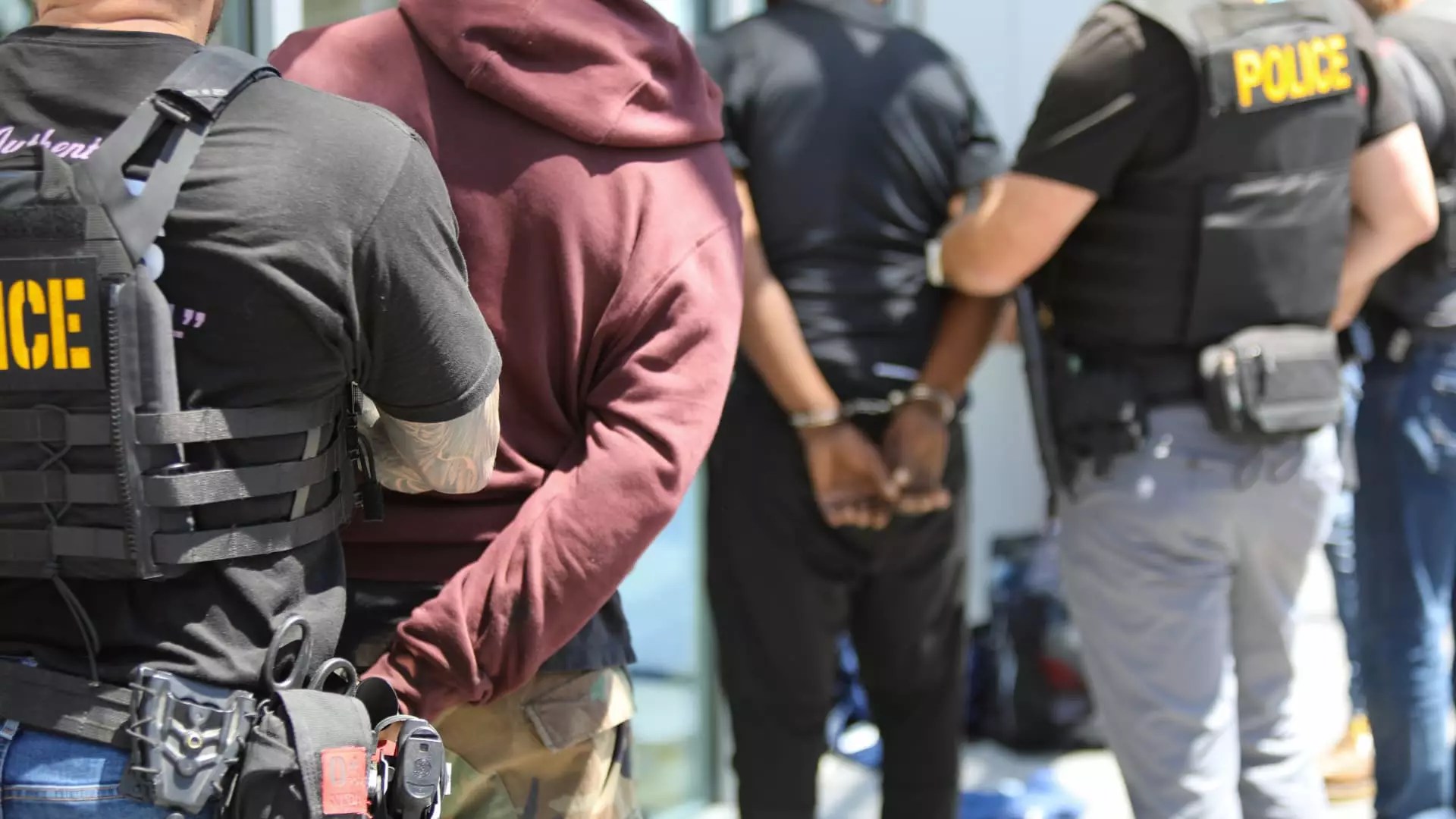In recent years, the landscape of retail theft has undergone a disturbing transformation. The rise of organized retail crime (ORC) has escalated the threat to businesses across the nation, with criminal syndicates operating with alarming efficiency. Unlike traditional shoplifting, ORC involves groups adept at executing complex heists, often targeting multiple stores simultaneously. This evolution in criminal conduct has warranted a significant and immediate response from law enforcement, culminating in the unprecedented crackdown that spanned 28 states last week.
Marking a pivotal moment in the fight against retail crime, the operation, spearheaded by the Cook County regional organized crime task force, involved over 100 jurisdictions collaborating with major retailers such as Home Depot, Macy’s, and Target, among others. According to authorities, this was not just a routine sweep, but a calculated effort to demonstrate that the government is willing to take crime seriously. Cook County Sheriff Tom Dart aptly noted, “When they see it is being prosecuted and taken seriously, it deters conduct. They don’t want to get caught.” This vigilant stance is critical; the numbers offered by the National Retail Federation make it clear that this battle is far from won.
An Alarming Surge in Data
The statistics surrounding retail theft are nothing short of staggering. In 2023, retailers reported a mind-boggling 93% increase in shoplifting incidents compared to 2019, with related financial losses surging 90%. Such figures underscore the escalating crisis that retailers and consumers alike face in their daily lives. It’s evident that the existing thresholds for felony charges have been insufficient to deter potential thieves, allowing criminals to exploit gaps in legislation with relative ease. This widespread issue demands an immediate re-evaluation of policies aimed at curtailing theft.
Eileen O’Neill Burke, the recently appointed Cook County State’s Attorney, is taking commendable steps to grapple with this legal loophole. On her first day in office, she made headlines by affirming that her office would pursue felony charges for retail theft when the value of stolen goods exceeds $300—a stark contrast to the former $1,000 threshold. This reformation is more than just a legal adjustment; it conveys a message: the local government is committed to upholding accountability, and that may serve as a much-needed deterrent for would-be offenders.
The Power of Collaboration
This most recent crackdown was not merely a show of force but a testimony to the effectiveness of collaboration between law enforcement and retail entities. Major corporations recognized the need to take a stand against ORC, actively participating by providing valuable intelligence regarding theft patterns and networks. Ulta Beauty’s Senior Vice President of Loss Prevention, Dan Petrousek, highlighted the importance of this cooperation, stating, “Collaboration is key to making a meaningful impact.” This collaboration between the private sector and governmental agencies has the potential to reshape the landscape of crime prevention.
Walgreens’ media relations director echoed this sentiment, acknowledging that ORC remains one of the principal challenges within the industry. The combined efforts across various jurisdictions not only exemplify unity among various stakeholders but also amplify the effectiveness of operations aimed at dismantling these criminal networks. As businesses openly admit to being victims of crime, it becomes clear that the partnership between law enforcement and the retail sector is essential in making tangible progress against ORC.
A Path Forward
While the recent operation is a step in the right direction, it’s crucial for all stakeholders to continue pushing for tougher laws and enhanced resources to combat retail crime. The strained resources of law enforcement can’t be overlooked; we demand both commitment and funding from our local and state governments. Improvements in legislation are necessary not just to protect retailers, but also to safeguard communities from the adverse effects of rampant theft.
As this initial surge of arrests and coordinated operations draws to a close, the focus must not wane. Law enforcement agencies should remain vigilant in gathering and sharing intelligence while reinforcing the message that retail crime will not be tolerated. The cooperation between retailers and law enforcement should not just be momentary but develop into a sustainable framework for ongoing crime reduction efforts. By elevating the charge against retail crime, we can instill a sense of accountability and ultimately reclaim our neighborhoods from the grip of organized theft.


Leave a Reply